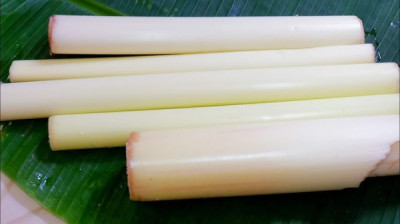What Is Kol Posola In Assam And How Is It Used In Traditional Assamese Cuisine?



In Assamese kitchens, Kol Posola is usually prepared as a stir-fry with potatoes, black gram, and mustard seeds, or cooked with fish for a wholesome meal. Sometimes it is combined with pulses or leafy greens, adding variety to the diet. Its mildly sweet, earthy taste blends beautifully with minimal spices, making it a light yet satisfying dish.
Apart from its culinary appeal, Kol Posola is rich in fiber, potassium, and vitamins, aiding digestion, detoxification, and overall gut health. In traditional Assamese food culture, it is also valued for its cooling properties, especially during the summer.
By transforming a simple banana stem into a flavorful delicacy, Kol Posola reflects the Assamese way of cooking — simple, resourceful, and healthy — keeping both tradition and nutrition at the heart of the meal.